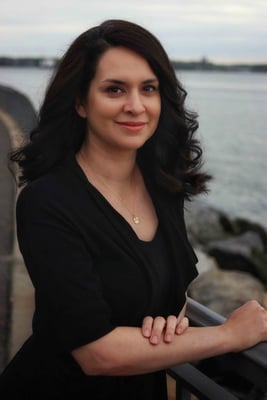
Flash fiction demands from authors both specificity and the power of suggestion. The challenge of fitting a full story arc—setting, characterization, dialogue, conflict—into the confines of a short word count can feel understandably daunting.
That’s why we spoke with Janelle Milanes, YA author and Guest Judge for our Flash Fiction Competition, about finding creative freedom in the flash genre. Janelle also shared insights into her experiences in writing and publishing, her perspective on the need for more diverse representation in literature, and the YA authors she turns to for inspiration in times of writers’ block.
1. What do you love most about writing for a YA audience?
There is a passion to YA readers that is unparalleled. I think the genre of YA has, most importantly, good stories. Realistic coming of age, fantasy, horror, suspense, whatever you’re craving. For me, being a young adult was the scariest and most exciting time of my life. You really have no idea where you’ll end up, you’re figuring out who you are, and the path your life will take is a mystery. There is something special about the not knowing. Reading and writing YA captures that feeling in a way no other genre can.
2. In previous interviews, you’ve discussed how growing up as a Cuban American has influenced your work and characters. Can you share some reflections on the strengths of writing about what you know, and the importance of diverse voices in YA literature?
I would have loved to have seen more characters like me in what I read growing up…actually, I would still love to see more characters like me in what I currently read as well. Diversity is sorely lacking in the publishing industry, and the books published reflect that. When I do encounter a Latinx character in something I read (which is rare, unless I seek it out), the character is often either a stereotype or the story revolves around that character’s “otherness.”
One thing that is important to me in writing is that the story must hold its own. I don’t want my books to center around my character’s diversity. I just want to write a good story about a character who happens to be Latinx and have that identity woven throughout. As in life, my ethnicity is not at the forefront of my mind at all times. It happens to be a part of who I am, and in many ways I interact with that on a subconscious level. I wanted the same authenticity in my books for readers like me.
No one has an experience quite like anyone else’s. You might see some aspects of yourself in another writer’s characters, but there is a wide range of experiences within any group of people. There is no all-encompassing Latinx experience, Black experience, Asian experience, etc. There is so much room for diverse voices within a group of people, which is why variety is so important. No one person can encompass everything.
3. As our writers prepare to submit very short stories—99 words or less—to our Flash Fiction competition, what advice do you have for fitting a full story arc into the confines of this genre? What are you looking for in a winning entry?
You can view the word count as a limitation or as a freedom. When writing such a short piece, you are allowed to dive in. No time to waste on exposition or introductions. Carefully choose details that will tell your reader enough about your characters. If you tend to overwrite, like I do, forgive yourself and be prepared to trim the fat during the editing process.
I’m looking for something that grabs me immediately. The way a story starts is so important to me. At 99 words, each word matters that much more. Be precise in what details you choose to include.

4. Do you have any projects-in-the-works that you’d like to share?
Before the pandemic, I had started a middle-grade novel about a girl and her single mother moving back to their old hometown to confront their past, but it has been put on pause. Truthfully, I haven’t been in the headspace to write and I’m learning that that’s okay. I’m not sure exactly what fiction will look like in a post-pandemic world so at the moment I’m taking a wait-and-see approach. I may continue my current book or write something entirely new!
5. If you were to make 2 book recommendations to teens interested in writing YA fiction, which would they be, and why?
For authentic voice, Judy Blume is my queen. Just As Long as We’re Together and Starring Sally J. Freedman as Herself are a couple of my favorites. They skew a bit younger compared to current YA but are still so relevant to the coming of age experience. Sometimes when you read YA you can tell it’s an adult trying on a teen’s voice. It seems…off. But when I read Judy Blume’s writing, it actually brings me back to the way I felt growing up. She knows how to capture the confusion of it all so well.
For beautiful, unique prose, I recommend I’ll Give You the Sun or The Sky is Everywhere by Jandy Nelson. Her sentences are so gorgeous I reread them just to savor the experience. For all you authors out there, I recommend Jandy Nelson’s books as the ultimate cure for writer’s block. I took so many more risks in my writing after reading these books, like someone gave me permission to break the rules.





